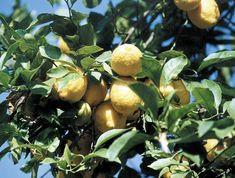
The energy crisis in Argentina is affecting the citrus sector and will have an impact on lemon exports, sector leaders warn.
A lack of rainfall is being blamed for shortages of hydro electricity, while extraction and transport problems and lack of supply are having an impact on natural gas availability in the South American country.
The knock-on effect is that full supplies to industry and agriculture are limited to 16 hours in 24. Productivity across all sectors is therefore running at only two-thirds. “The impact is being felt back along the supply chain,” said agronomist Bartolomé Del Bono, who is also the general manager of Tucumán citrus association, ATC.
“The processing sector is not working at full capacity; therefore packhouses have to reduce the amount they send to industry and this affects how much can be harvested if there is no outlet for fruit that is not export quality.”
The impact is not just in the lemon-growing Tucumán area of north-west Argentina, but also in the Concordia area, where oranges and easy-peelers for export are grown. The cold weather that is sweeping Chile and Argentina means that fruit is able to stay a little longer on trees without maturing too fast. Even so, the rate of harvesting and packing is slowing because of the crisis.
“We will definitely see a decline in exports,” said Del Bono. “And the export companies are very worried - they have programmes and if they cannot meet them it will bring grave commercial consequences.”
Del Bono and other sector leaders are also concerned for the socio-economic effects and, in Tucumán, about 12.5 per cent of the working population does not have access to work because of the crisis.
“The problem is that for a seasonal business such as ours, there is no short-term solution,” said Del Bono. “But we are in constant contact with the provincial government, which knows how critical the situation is for us.”



